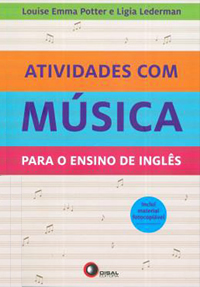By - Sueli Monteiro

Why do we assess students in our English language lessons?
What should be assessed?
What does it mean to assess in a project-based learning environment?
Why is it so important to have meaningful assessments?
The topic of assessment has already caused so much uneasiness and stress among teachers of English and I include myself in this group. Teachers are not necessarily professional test designers. It is therefore considered a difficult, challenging, and why not, in some cases, a boring task for teachers in general to design different types of tests and evaluation moments. So many questions come up when we start reflecting about assessment and my aim here today is to try and present some ideas ... just some food for thought.... as this is quite a deep and comprehensive topic.
When I started working with project-based learning (PBL) and had the mission of leading a team of English language teachers I noticed that by addressing the topic of assessment I would be able to make teachers reflect on the way they viewed the language learning/teaching process. Some of them came from a very traditional teaching environment, others were inexperienced in teaching and some were eager to unveil the mysteries of assessing students in a meaningful way within the PBL methodology proposed by the school.
Therefore, my intention here is to try and address some elements involved in the process of assessing language learners immersed in a PBL methodology, in which a project is developed covering not only linguistic aspects to be taught to a certain level/age group, but also (and mainly) including competences and skills for an efficient and relevant use of the language - as well as cultural and social aspects related to the target (second) language.
First, I would like to say that for the evaluation process to be efficient it has to be composed of different tools, that is, I need to evaluate my students in different formats, moments and situations. It is not only a question of assessing the students' speaking, reading, writing and listening skills. It is deeper than that - I need to evaluate students' ability to gather different concepts, knowledge and experiences acquired throughout their learning process in order to solve a problem, to use the language efficiently in a given situation and to achieve a certain communicative goal.
When we discuss about meaningful assessment we should remember, as very well stated by Heather Wolpert-Gawron in her article "How can we make assessments meaningful?" that 'tests must have value other than "because it is on the test". They should incorporate skills that students need for their future; they must assess skills other than merely factual/conceptual content. They must also test how eloquently the students communicate their content.'
Written assessments are one of the tools we have for this challenging task. So let's focus on them. Thankfully, by working with PBL we can look at a more fluid, flexible and interesting future for written test formats. Assessment tools can be more informal, engaging, authentic and consequently meaningful to teachers and students if we are all involved in projects.
The first requirement for these assessments to be meaningful in PBL is the choice of themes. I usually tell teachers that a test 'should tell students a story'. A theme is chosen and this context will then be the basis for all the proposals we devise. You cannot work in an integrated, interdisciplinary way during the development of a project and then devise a test in which language aspects are tested in an isolated, de-contextualized way.
However, be aware! Only choosing a theme for our written assessments does not mean they are contextualized. Context is broader than that...context involves usage.... Context is related to the real use of the language in a certain given situation.
So a theme is chosen - a theme that has been thoroughly discussed by students in class and which is the basis for our driving questions within the project we are working with.
Then, another important aspect for assessments to be meaningful is its validity. Is the test accurately measuring what it intends to measure? And is this intention clearly stated to students before they start doing the test? My suggestion is that every assessment should have at its introduction a box describing the evaluation focus and objectives. What is being assessed? Students should refer to that when they answering the test proposals and the teachers should be guided by that when correcting them. If in this box there is one objective that states that task achievement is one of the criteria to be assessed, a student who writes a beautiful answer to a certain question but does not use the words that were asked, or does not comply with other requirements such as the number of words, should be penalized.
After defining our intentions, we start devising the tasks students should accomplish. These tasks should focus on real-world use of the language. They should be relevant and attractive to our students. And, above all, they should assess the students' ability to apply the language knowledge they have acquired in order to accomplish the task. Meaningful assessments should involve the skills students need to be successful when using English in real-life situations.
Grammar should not be evaluated in itself but as a component that allows students to be accurate and adequate when fulfilling a certain task. I usually give a very simple example when we talk about meaningful assessment: instead of giving a text in which students should fill in the gaps with the past simple of the verbs in brackets, we should give a text (inserted in a context, related to the theme of the test) in which gaps are there to be filled with verbs in the correct tense, so that students have to consider which tense would be more appropriate for that situation, and also gaps for other parts of speech.
Authenticity is also an important component when we design our tests. The proposals should reflect real tasks we face when dealing with the language. Whenever possible, written or oral texts should be extracted from authentic sources, such as blogs, websites, videos, podcasts, TED talks, etc. and tasks should be levelled according to our students' language proficiency. One task should lead to another task, offering students more details about that topic and helping them expand the use of the language. These texts should make students read about (or listen to) things they may not know yet; they should get informed, updated and also entertained by what is being read/listened to during a test. After all, do we find it pleasant to read a text with no relevant or new information?
Every time we discuss about authenticity in our lessons we immediately think of technology. And that is an area that should be incorporated into our reflections about assessment. The use of different tools to assess students' performance in a foreign language helps us make the assessment process more dynamic, interactive and updated. Making use, for instance, of an online forum for the discussion of a certain topic is a rich and meaningful way to make students write in the second language. These comments on the forum can then be corrected, evaluated and later discussed by the whole group, including aspects such as the intention of that message, the adequacy of the words used, the effectiveness of that comment, etc. apart from the grammatical and lexical aspects used in the student's text. Teachers collaborate as mediators during this assessment task, enriching the students' participation and motivating them to go beyond.
As teachers, we should always aim at assessment opportunities in which we not only assess our students' learning, but also our own teaching. Tests should give data about how efficient our teaching is. It should be a reflection tool for teachers. How much does an assessment influence our teaching and our students' learning? Is the correction and feedback given to students an opportunity for them to reflect on the reasons why something is adequate or not for a certain situation? Can the correction of a test be a lesson in itself? It is our duty, as teachers and educators, to promote a reflective culture of assessment, focusing on learning rather than solely on grades.
As you can notice, these are just some ideas on this vast and challenging area. Assessing students' performance in a foreign language, and consequently assessing our performance as leaders of this learning process, involves asking questions more than answering them. We should be always open to try and test new formats in order to evaluate the outcomes. There is no ready-made solution...we should consider the students, their moment in the language learning process, the school environment, the purposes of the assessing moment in question, our classroom environment, etc. But there is one thing I am sure about - by reflecting on how we assess our students (and ourselves!) we can definitely consider important aspects about the way we teach and the outcome of this reflection will certainly promote advances and improvements in our classroom productivity. Just some food for thought, as I said initially.
Biodata: Sueli Monteiro holds an MA in 'Teaching of English for Specific Purposes' from Aston University, Birmingham, England, and a BA in English Language and Literature (Translator & Interpreter) from PUC/SP. She has worked as a teacher of English for Cultura Inglesa SP and as Director of Studies at St Giles Brazil. Since 2007, she is the coordinator of the foreign languages department at Escola Comunitária de Campinas, Campinas/SP, where she is in charge of the English and Spanish lessons from Kindergarten to High School, leading a team of 11 teachers. She is also an associate partner at SGM Assessoria Pedagógica, a language consultancy where she works as a translator and interpreter, teacher trainer, course designer and consultant for schools.
Tel. (19) 3867-3095/ (19) 997942737
E-mail: sueli.monteiro@uol.com.br / sgm.assessoria@gmail.com
LIVRO RECOMENDADO
